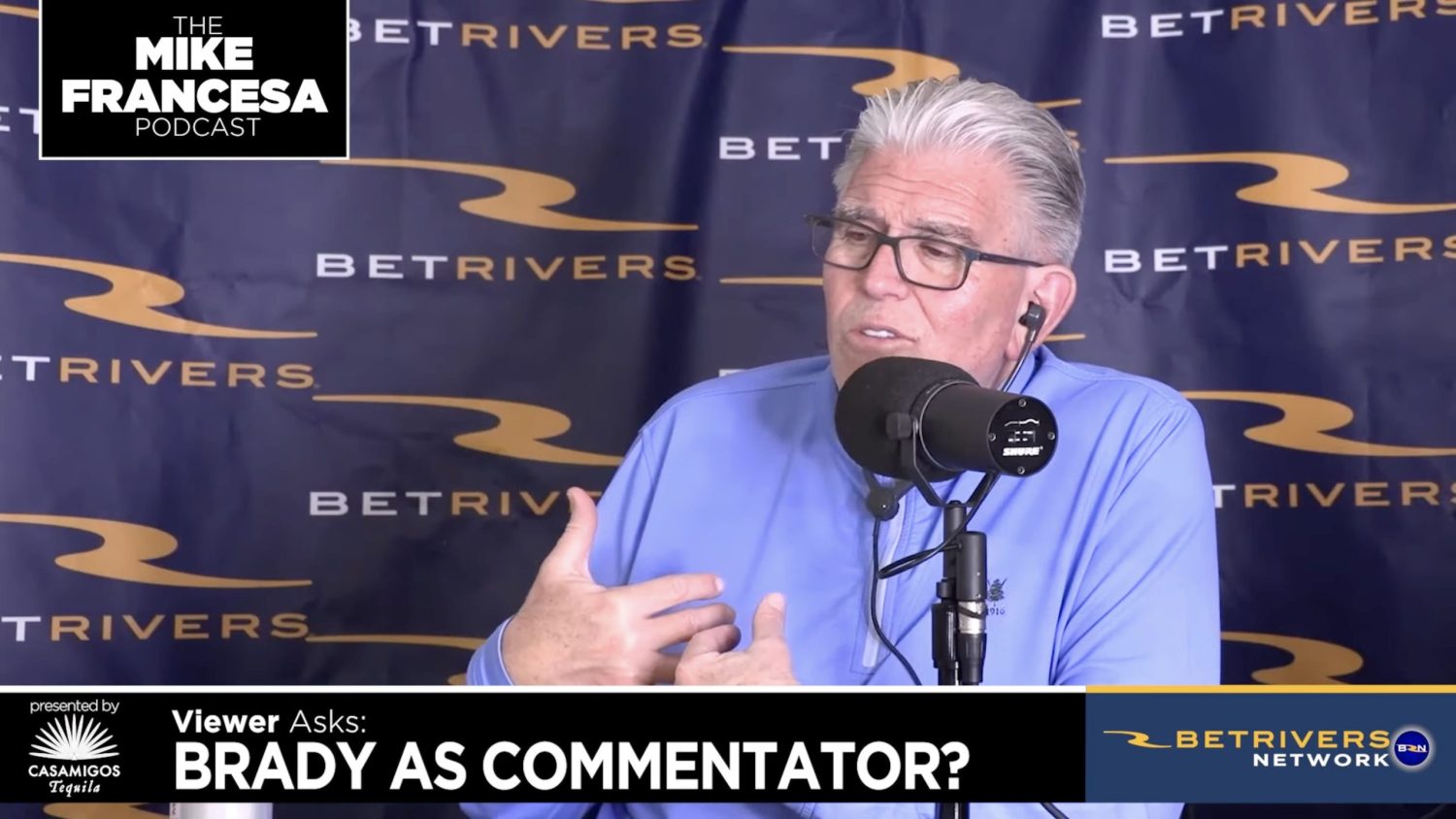By now, we have a good sense of which NFL rules analysts will go to bat for their fellow referees, falling on the sword no matter how bad the call. We also have a good sense of which rule analysts will call it as they see it, not leaving their opinions open for interpretation.
Last week, Joe Buck said that Fox didn’t like the way he used Mike Pereira. Now with ESPN, Buck attributed that it had something to do with making Pereira take a stand on a call that was made by an official that’s employed by the NFL.
As we’ve come to learn with Dean Blandino’s role at Fox, going against the grain is few and far between. Blandino, the XFL’s head of officiating, has previously explained that felt like the NFL was “not interested” in XFL-level transparency.
NFL broadcasts receive plenty of criticism for many reasons. If you listen and trust what Blandino says when it comes to officiating, that might as well be by design.
Regardless of what the NFL does and doesn’t want from rule analysts on league-broadcasted games, there are those like NBC’s Terry McAulay who offer a refreshing perspective. While his comments aren’t necessarily supposed to be an indictment of the current state of officiating, they spark a contrast in the overall willingness to defend a split-second call as opposed to calling it as you see it.
There were two instances during Sunday’s New York Giants-Buffalo Bills game, in which McAulay was critical, yet fair, about the call on the field. Giants’ linebacker Bobby Okereke was called for a questionable roughing the passer foul on Bills’ quarterback Josh Allen. NBC’s Cris Collinsworth wasted no time in turning it over to McAulay.
“And Cris, I’m gonna tell you it’s not a foul,” said McAulay. “It’s not late. It’s not to the head and neck area. This is a legal hit on the quarterback throwing on the run.”
"And Cris, I'm gonna tell you it's not a foul. It's not late. It's not to the head and neck area. This is a legal hit on the quarterback throwing on the run."- NBC rules analyst Terry McAulay🏈🦓🎙️ #SNF https://t.co/NUFFXagJhR
— Awful Announcing (@awfulannouncing) October 16, 2023
With Collinsworth offering a “thank you” in response, it just goes to show that that level of honesty and forthrightness is appreciated.
The second instance came on the final play of the game, in which Buffalo defensive back Taron Johnson appeared to interfere with New York tight end Darren Waller. The untimed down was a result of a pass interference penalty in the end zone, so the Giants had the ball at the 1-yard line with a chance to win the game on a walk-off. That saw Tyrod Taylor throw a jump ball to the 6-foot-6 target.
Collinsworth and Mike Tirico brought in McAulay, asking him to walk through the play from an official’s perspective.
“Yeah, Mike, it certainly wouldn’t be holding,” McAulay said. “The ball’s in flight. And had the ball not been in flight, that jersey pull is an automatic foul. We understand that. Once the ball’s in flight, now it changes what that pull means. It has to significantly hinder the receiver. And one can argue it did. Certainly one could argue that it maybe didn’t. Again, that’s the level you’re looking for, for a foul. Does that jersey grab significantly hinder the receiver’s ability to make the play?”
Should the Bills have been called for holding on the last play (a pass in the end zone to Giants TE Darren Waller)?
NBC #SNF rules analyst Terry McAulay talks it over with Mike Tirico and Cris Collinsworth. 🏈🦓📺🎙️ pic.twitter.com/gDq0cFH8tg
— Awful Announcing (@awfulannouncing) October 16, 2023
While McAulay seemingly hedged his bet, Collinsworth was able to squeeze an answer out of the former referee, offering the perspective from Waller’s point of view.
“And that’s perfectly reasonable, Cris,” McAulay told Collinsworth. “In your opinion, that does significantly hinder a receiver. I think it does as well, as we look it over. [Waller] can’t get that hand up. So, it does become a foul for defensive pass interference at that point. The official, obviously, in real-time didn’t believe it significantly hindered him and didn’t make the call.”
It’s not always going to be perfect, we all understand that. As Tirico pointed out in his closing, it comes down to inches, calls and judgment. And while rules analysts are often afforded the opportunity that their former colleagues are not, they choose to bite their tongue.
In McAulay’s case here, he had no issue calling the non-existent roughing the passer call for what it was. While he teetered between an answer on the last-second no-call, he did eventually admit that it should have been a foul for defensive pass interference.
And from what we’ve seen over the years, that’s refreshing. To say the least.







